0
Report
Community:
Apr 10, 2024
In this new report, The Children’s Equity Project and the Equity Research Action Coalition review the impacts of several social policies across health, education, housing, and income/wealth- on Black children and families.
This report advances the Black Child National Agenda, developed in 2021 by the Equity Research Action Coalition and other partners, by examining major policies and programs in the United States that impact the lives of Black children and families. It is critical to identify policies that can protect Black children and families from harm and trauma; promote their health, wealth, and access to educational excellence; and preserve their cultural heritage, language institutions, and healthy racial identity.
Authored by: Catherine, E., Alexander, B., Iruka, I.U., Meek, S., & Edwards, M.C. (April, 2024). Review of Policy Effects on Black Families and Children: Advancing the Black Child National Agenda. Equity Research Action Coalition at UNC Frank Porter Graham Child Devel
Topics: Advocacy, Child welfare, Early childhood, Racial inequalities
 Shared by Molli Caite Hughes
Shared by Molli Caite Hughes
Molli Caite Hughes posted a
on Apr 10, 2024
Catherine, E., Alexander, B., Iruka, I.U., Meek, S., & Edwards, M.C. (April, 2024). Review of Policy Effects on Black Families and Children: Advancing the Black Child National Agenda. Equity Research Action Coalition at UNC Frank Porter Graham Child Devel
In this new report, The Children’s Equity Project and the Equity Research Action Coalition review the impacts of several social policies across health, education, housing, and income/wealth- on Black children and families.
This report advances the Black Child National Agenda, developed in 2021 by
0
Report
Community:
May 17, 2023

The COVID-19 pandemic has upended life for children and families globally. The health, economic, educational and related stressors have contributed to mental health challenges for people of all ages, including our youngest and those who care for them.
In a new report, the Children's Equity Project, in partnership with the Buffett Early Childhood Institute at the University of Nebraska and Yale University, highlights the mental health of the early care and education workforce and the children they care for using data collected over the course of the pandemic in 2020 and 2021.
The report focuses on depression and elevated stress, including racialized stress in early educators, and provider reported increases in child externalizing, internalizing, and somatic symptoms. We provide national data as well as state profiles that highlight trends across state lines. We end with a set of recommendations for Congress, federal agencies, and states in prioritizing the mental health of children, families, and the early educators who care for them.
Authored by: Cinthia Palomino, PhD, Ayse Cobanoglu, PhD, Jennifer Oppenheim, PsyD, Evandra Catherinr, PhD, Shantel Meek, PhD, Walter Gilliam, PhD, Eric Bucher, EdD for Children's Equity Project
Topics: COVID-19, Early childhood, Education, Legislation & Policy, Low-income, Mental health, Racial inequalities
 Shared by Sandra Ware
Shared by Sandra Ware
Sandra Ware posted a
on May 17, 2023
Cinthia Palomino, PhD, Ayse Cobanoglu, PhD, Jennifer Oppenheim, PsyD, Evandra Catherinr, PhD, Shantel Meek, PhD, Walter Gilliam, PhD, Eric Bucher, EdD for Children's Equity Project
The COVID-19 pandemic has upended life for children and families globally.
0
Report
Community:
Mar 1, 2023
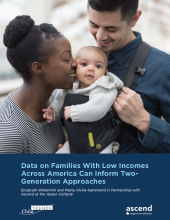
We are delighted to share a new research report in partnership with Child Trends: Data on Families with Low Incomes Across America Can Inform Two-Generation Approaches. In this new analysis, research experts Elizabeth Wildsmith and Marta Alvira-Hammond paint a detailed picture of how families in households with low incomes in the United States have changed since 2011. The report highlights 10 key findings from their analyses of family economic and social conditions related to financial security and mobility, family structure and living arrangements, education and employment, parental health, and community health indicators (for example, rates of child poverty, violent crime, child care costs). A deeper understanding of families with low-incomes will inform our collective work and strengthen how our 2Gen policy and practice recommendations can prioritize health, education, employment, and economic assets to ensure families have access to the resources they need to build intergenerational prosperity and well-being.
Authored by: Elizabeth Wildsmith and Marta Alvira-Hammond for Child Trends in partnership with Ascend at the Aspen Institute
Topics: dual-generation initiative, Early childhood, Education, Health, Housing, Legislation & Policy, Low-income, Racial inequalities
 Shared by Sandra Ware
Shared by Sandra Ware
Sandra Ware posted a
on Mar 2, 2023
Elizabeth Wildsmith and Marta Alvira-Hammond for Child Trends in partnership with Ascend at the Aspen Institute
We are delighted to share a new research report in partnership with Child Trends: Data on Families with Low Incomes Across America Can Inform Two-Generation Approaches.
0
Report
Community:
Mar 1, 2023
At this time of year, pull up to a busy intersection or pass by some popular public gathering place in and around Durham, and there’s a good chance you might find a sign advertising “PreK for All.” January kicks off Durham PreK’s annual recruitment campaign for the approaching school year, and if you have a rising preschooler in your life, you may be wondering what it means to offer pre-k for all.
The resulting report, “Toward Equity in Durham PreK: Addressing the Accessibility of Wraparound Care as a Barrier to Universal PreK in Durham,” details the findings, identifies key program participation challenges tied to wraparound care access and availability, and offers conclusions and recommendations for addressing these challenges now and in the future.
Authored by: Child Care Services Association (CCSA)
Topics: COVID-19, Early childhood, Education, Funding, Housing, Legislation & Policy, Low-income, Racial inequalities
 Shared by Sandra Ware
Shared by Sandra Ware
Sandra Ware posted a
on Mar 2, 2023
Child Care Services Association (CCSA)
At this time of year, pull up to a busy intersection or pass by some popular public gathering place in and around Durham, and there’s a good chance you might find a sign advertising “PreK for All.” January kicks off Durham PreK’s annual recruitment campaign for the approaching school year, and if yo
0
Report
Community:
Feb 17, 2023
The findings from a Syracuse University study linking universal school meal policies with improved school attendance for young students provides a strong case for expanding free school meals, according to school nutrition and attendance experts.
Authored by: Anna Merod for K-12 DIVE
Topics: Attendance, Early childhood, Education, Food insecurity, Health, Legislation & Policy, Low-income, Nutrition, Youth
 Shared by Sandra Ware
Shared by Sandra Ware
Sandra Ware posted a
on Feb 23, 2023
The findings from a Syracuse University study linking universal school meal policies with improved school attendance for young students provides a strong case for expanding free school meals, according to school nutrition and attendance experts.
0
Report
Community:
Feb 7, 2023

In the 2020-21 school year, more than 25 million children and youth – roughly half of all elementary and secondary students in the United States – attended schools in school districts that lacked dedicated funding to identify and support students experiencing homelessness. This significant funding gap increases the likelihood that many children and youth experiencing homelessness will not be identified, and even in cases where they are identified, that they will not receive the educational protections and services that can stabilize their education and their lives. Ensuring access to these supports is an important part of creating a school system that meets the needs of all our nation’s children and youth. SchoolHouse Connection and Poverty Solutions at the University of Michigan analyzed publicly-available preK-12 federal education data for the 2020-2021 school year to examine patterns that are correlated with under-identifying and inadequately supporting children and youth experiencing homelessness.
Authored by: SchoolHouse Connection and University of Michigan
Topics: Early childhood, Education, Funding, Homelessness, Low-income, Research, School-readiness, Stability, Youth
 Shared by Sandra Ware
Shared by Sandra Ware
Sandra Ware posted a
on Feb 21, 2023
SchoolHouse Connection and University of Michigan
In the 2020-21 school year, more than 25 million children and youth – roughly half of all elementary and secondary students in the United States – attended schools in school districts that lacked dedicated funding to identify and support students experiencing homelessness.
0
Report
Community:
Nov 17, 2022
Homelessness is a traumatic experience with long-term consequences, particularly for infants and toddlers in their most critical stages of development. Yet homelessness among young children is hidden. Lack of shelter, fear of having children removed from parental custody, and restrictive eligibility criteria for housing programs mean that most young children experiencing homelessness stay in places that are not easily identified.
To this end, SchoolHouse Connection and Poverty Solutions at the University of Michigan analyzed data from twenty states that have formed broad-based coalitions to move prenatal-to-3 priorities forward.
This report describes the prevalence of homelessness among infants and toddlers in these twenty states; gaps in access to early learning programs; and recommendations for increasing enrollment and support.
Authored by: School House Connection
Topics: Child welfare, COVID-19, Early childhood, Education, Foster care, Homelessness, Legislation & Policy, Pre-natal, Racial inequalities, Research, Youth
 Shared by Sandra Ware
Shared by Sandra Ware
Sandra Ware posted a
on Nov 17, 2022
Homelessness is a traumatic experience with long-term consequences, particularly for infants and toddlers in their most critical stages of development. Yet homelessness among young children is hidden.
0
Report
Community:
Jun 27, 2022
We have an abundance of talent that is ready to reimagine early childhood and well-being in America for our youngest children and families, but we do not have an abundance of leadership experiences that nurture, propel, and position them as the dynamic leaders our country urgently needs.
Leadership that reflects the full diversity and genius of our communities, sectors, identities, and lived experiences matters now more than ever. In Toward A More Equitable Tomorrow: A Landscape Analysis of Early Childhood Leadership, we uncover the essentials for future leadership investments that value and center equity—especially racial equity and inclusion—to surface new possibilities and equitable prosperity moving forward. Insights from stakeholders including state and federal cabinet directors, service providers, funders, and parents offer powerful perspectives to guide the future early childhood field, and guide those who seek to accelerate families’ well-being, educational success, and economic mobility.
Ascend at the Aspen Institute is embracing this moment as a renewal, and also as a redoubling of our commitment to remake our systems and our society. This means centering children and families with a focus not simply on eliminating persistent inequities such as poverty, polarization, and racism, but on ensuring pathways to prosperity and well-being.
With support from the Buffett Early Childhood Fund, David and Lucile Packard Foundation, and the Bezos Family Foundation, Ascend undertook a robust landscape analysis of the early childhood field. More than 80 leaders—from research, practice, policy, philanthropy, and families with young children—shared their insights for this report. It was augmented by a review of 20 mission-aligned leadership efforts. Our inquiry was grounded in an intentional focus on racial, economic, and gender equity; respect for the advances made; commitment to innovation; and an open mind to new approaches, possibilities, and power.
Authored by: Ascend at the Aspen Institute
Topics: Advocacy, Asset building, Child welfare, CLPHA, Early childhood, Housing, Legislation & Policy, Racial inequalities, Research, Supportive housing, Sustainability, Youth
 Shared by Karina George
Shared by Karina George
Karina George posted a
on Jun 27, 2022
Ascend at the Aspen Institute
We have an abundance of talent that is ready to reimagine early childhood and well-being in America for our youngest children and families, but we do not have an abundance of leadership experiences that nurture, propel, and position them as the dynamic leaders our country urgently needs.
0
Report
Community:
Apr 11, 2022
Educators play an important role in supporting students' mental well-being. The pandemic has added incredible layers of stress for both adults and young people. Although educators can't control all the stressors and sources of trauma affecting them, they can foster healing and wellness in their classroom or program and work to remove the stigma around mental health concerns.
Authored by: First Book Research & Insights
Topics: Advocacy, Depression, Early childhood, Education, Health, Healthy homes, Literacy, Low-income, Mental health, Racial inequalities, Research, School-readiness, Youth
 Shared by Stephanie Gray
Shared by Stephanie Gray
Stephanie Gray posted a
on Apr 11, 2022
First Book Research & Insights
Educators play an important role in supporting students' mental well-being. The pandemic has added incredible layers of stress for both adults and young people.
0
Report
Community: Youth
Dec 1, 2020
420,000.
Based on the new report, "Lost in the Masked Shuffle & Virtual Void: Children and Youth Experiencing Homelessness Amidst the Pandemic" from SchoolHouse Connection and Poverty Solutions at the University of Michigan, that’s how many fewer children and youth experiencing homelessness have been identified and enrolled by schools so far this school year.
According to our data and insights - gathered from educators and homeless liaisons across 49 states - the number of children, youth, and families experiencing homelessness has likely increased due to the economic crisis. Yet, because of COVID-19 challenges in identifying children and youth experiencing homelessness, hundreds of thousands may not be getting the education and support they need - from internet access, to housing, to food, to child care.
What’s more, only 18% of respondents indicated that federal coronavirus relief education funding provided by the CARES Act is being used to meet the needs of students experiencing homelessness.
To break generational cycles of homelessness, we must take swift action to support the increasing number of children, youth, and families in need. Check out our report to learn more and take action. We have included recommendations for Congressional leaders, state and local educational agencies, homeless, housing, food, and other relief agencies, and philanthropic organizations.
Authored by: Poverty Solutions at THE UNIVERSITY OF MICHIGAN & SCHOOLHOUSE CONNECTION
Topics: Attendance, Child welfare, Early childhood, Education, Funding, Health, Homelessness, Low-income, Stability, Youth
 Shared by Housing Is
Shared by Housing Is
Housing Is posted a
on Dec 1, 2020
Poverty Solutions at THE UNIVERSITY OF MICHIGAN & SCHOOLHOUSE CONNECTION
0
Report
Community:
Nov 7, 2019
How Housing Programs Can Support the Educational Needs of Children Living in Publicly Supported Homes
Authored by: Public and Affordable Housing Research Corporation
Topics: Attendance, Broadband, Child welfare, Early childhood, Health, Housing, Literacy, Low-income, Out-of-school time, Partnerships, Place-based, Research, School-readiness
 Shared by Kelly McElwain
Shared by Kelly McElwain
Kelly McElwain posted a
on Nov 7, 2019
Public and Affordable Housing Research Corporation
How Housing Programs Can Support the Educational Needs of Children Living in Publicly Supported Homes
0
News Article
Community:
Jun 12, 2019
About half of the student body at one Ohio elementary school has witnessed drug use at home. Educators spend time every day teaching the children how to cope.
Authored by: Dan Levin for The New York Times
Topics: Child welfare, Early childhood, Education, Health, Substance abuse, Youth
 Shared by Housing Is
Shared by Housing Is
Housing Is posted a
on Jun 13, 2019
Dan Levin for The New York Times
About half of the student body at one Ohio elementary school has witnessed drug use at home. Educators spend time every day teaching the children how to cope.
0
News Article
Community:
Recognizing that the aging of its population will reshape housing needs, the city of Washington, DC, has fostered numerous options for older residents, including some that are intentionally multigenerational.
Authored by: PD&R Edge Online Magazine
Topics: Early childhood, Family engagement, Housing, Low-income, Seniors, Youth
 Shared by Housing Is
Shared by Housing Is
Housing Is posted a
on Jun 11, 2019
PD&R Edge Online Magazine
Recognizing that the aging of its population will reshape housing needs, the city of Washington, DC, has fostered numerous options for older residents, including some that are intentionally multigenerational.
0
Report
Community:
May 1, 2019
Protecting and improving the health of pregnant and postpartum women, infants, and young children is critically important. Those eligible for WIC — and frequently their communities and the nation — are facing levels of poverty, food insecurity, inadequate dietary intake, obesity, and ill health that are far too
high. Research shows that WIC can help to alleviate these problems for children, mothers, and their families, and improve overall health and well-being. Yet the program is reaching far too few eligible people: only 3 out of 5. Increasing access to and strengthening WIC is essential to improving nutrition and reducing health disparities in this nation.
Authored by: Food Research & Action Center (FRAC)
Topics: Early childhood, Family engagement, Food insecurity, Funding, Health, Legislation & Policy, Low-income
 Shared by Housing Is
Shared by Housing Is
Housing Is posted a
on Jun 3, 2019
Food Research & Action Center (FRAC)
Protecting and improving the health of pregnant and postpartum women, infants, and young children is critically important.
0
Report
Community:
Apr 25, 2019
Access to affordable child care can be a major barrier for low-income parents who want to participate in education and training activities to gain skills or obtain employment. Child care assistance from the Child Care and Development Fund (CCDF), the federal block grant that funds states to provide child care assistance to low-income families, can help alleviate this barrier and make it easier for low-income parents to participate in activities that improve their skills and lead to stable employment with adequate pay. However, the CCDF eligibility requirements and priorities for service are set at the state level, and states make different decisions about how to allocate scarce CCDF resources, so access to and use of CCDF subsidies for parents seeking education and training varies across states.
Authored by: Semhar Gebrekristos and Gina Adams for The Urban Institute
Topics: Child welfare, Early childhood, Education, Legislation & Policy, Post-secondary, Research, Workforce development
 Shared by Housing Is
Shared by Housing Is
Housing Is posted a
on May 30, 2019
Semhar Gebrekristos and Gina Adams for The Urban Institute
Access to affordable child care can be a major barrier for low-income parents who want to participate in education and training activities to gain skills or obtain employment.
0
News Article
Community:
Mar 18, 2019
It’s a prescription guaranteed to develop healthy brains, refine motor skills and prepare kids for school, doctors say. But few parents expect a physician to hand their children a book at their first wellness checkup at Nationwide Children’s Hospital in Columbus.
Authored by: Alissa Widman Neese for The Columbus Dispatch
Topics: Child welfare, Early childhood, Education, Health, Literacy, Low-income, Partnerships
 Shared by Housing Is
Shared by Housing Is
Housing Is posted a
on May 30, 2019
Alissa Widman Neese for The Columbus Dispatch
It’s a prescription guaranteed to develop healthy brains, refine motor skills and prepare kids for school, doctors say. But few parents expect a physician to hand their children a book at their first wellness checkup at Nationwide Children’s Hospital in Columbus.
0
Report
Community:
May 1, 2019
Child poverty is an urgent and preventable crisis. Solutions to child poverty already exist if we just expand and invest in them. Benefits like nutrition assistance, housing vouchers and tax credits helped lift nearly 7 million children out of poverty in 2017, but millions of children were left behind due to inadequate funding, eligibility restrictions and low wages. We can and must fix these problems to help more children escape poverty now.
Authored by: Children's Defense Fund
Topics: Child welfare, Dual-generation, Early childhood, Food insecurity, Funding, Housing, Legislation & Policy, Low-income, Research, Workforce development
 Shared by Housing Is
Shared by Housing Is
Housing Is posted a
on May 28, 2019
Child poverty is an urgent and preventable crisis. Solutions to child poverty already exist if we just expand and invest in them.
0
News Article
Community:
Apr 4, 2019
Education Design Lab taps four large community colleges in an ambitious effort to raise single-mother completion rate 30 percent at each institution by 2024.
Authored by: Education Design Lab for Ciston PR Newswire
Topics: Dual-generation, Early childhood, Family engagement, Low-income, Metrics, Post-secondary
 Shared by Mica O'Brien
Shared by Mica O'Brien
Mica O'Brien posted a
on Apr 18, 2019
Education Design Lab for Ciston PR Newswire
Education Design Lab taps four large community colleges in an ambitious effort to raise single-mother completion rate 30 percent at each institution by 2024.
0
News Article
Community:
Mar 19, 2019
For 17 years, physicians, nurse practitioners and pediatric residents at our hospital, and presently, at more than 80 locations throughout the region, have been participating in Reach Out and Read of Greater Philadelphia (www.reachoutandreadphilly.org), a simple yet profound way to harness the power of a book to potentially alter a child’s health trajectory.
Authored by: Daniel Taylor for The Inquirer
Topics: Early childhood, East Coast, Education, Grade-level proficiency, Health, Literacy, Low-income
 Shared by Housing Is
Shared by Housing Is
Housing Is posted a
on Apr 18, 2019
Daniel Taylor for The Inquirer
For 17 years, physicians, nurse practitioners and pediatric residents at our hospital, and presently, at more than 80 locations throughout the region, have been participating in Reach Out and Read of Greater Philadelphia (www.reachoutandreadphilly.org), a simple yet profound way to harness the power
0
Report
Community:
Apr 1, 2019
With 22 percent of the undergraduate student population comprised of parents, policymakers and institutions must explore the unique needs of this population and address the challenges that may prevent parents from attaining their degree. This includes determining what systems, services, and approaches best support their mental health needs. This brief examines opportunities for policymakers and academic institutions to adapt existing mental health services in order to meet the unique needs of students who are parents and help them complete their degree.
Authored by: Ascend: The Aspen Institute
Topics: Dual-generation, Early childhood, Mental health, Post-secondary
 Shared by Mica O'Brien
Shared by Mica O'Brien
Mica O'Brien posted a
on Apr 11, 2019
Ascend: The Aspen Institute
With 22 percent of the undergraduate student population comprised of parents, policymakers and institutions must explore the unique needs of this population and address the challenges that may prevent parents from attaining their degree.
0
Report
Community:
Apr 1, 2019
Investments in the postsecondary success of parents with young children can increase attainment of credentials leading to good jobs, bring children the benefits of high-quality learning environments, promote later college-going among children, and improve family economic security across generations. This factsheet provides figures on the student parent population based on the latest National Postsecondary Student Aid Study data.
Authored by: Ascend: The Aspen Institute
Topics: Dual-generation, Early childhood, Post-secondary, Research, Youth
 Shared by Mica O'Brien
Shared by Mica O'Brien
Mica O'Brien posted a
on Apr 11, 2019
Ascend: The Aspen Institute
Investments in the postsecondary success of parents with young children can increase attainment of credentials leading to good jobs, bring children the benefits of high-quality learning environments, promote later college-going among children, and improve family economic security across generations.
0
News Article
Community:
Apr 10, 2019
Senate Democrats, led by Sherrod Brown (OH), Michael Bennet (CO), Dick Durbin (IL), and Ron Wyden (OR), has introduced a new bill that would establish a child allowance for the first time in American history and substantially increase the size of the Earned Income Tax Credit for low-income people.
Authored by: Dylan Matthews for Vox
Topics: Early childhood, Legislation & Policy, Low-income, Research
 Shared by Housing Is
Shared by Housing Is
Housing Is posted a
on Apr 10, 2019
Senate Democrats, led by Sherrod Brown (OH), Michael Bennet (CO), Dick Durbin (IL), and Ron Wyden (OR), has introduced a new bill that would establish a child allowance for the first time in American history and substantially increase the size of the Earned Income Tax Credit for low-income people.
0
News Article
Community:
Apr 4, 2019
The nonprofit LIFT Orlando and AdventHealth have started construction on a “first of its kind” early learning center in the long-neglected West Lakes neighborhood south of Camping World Stadium, with an opening expected by August. The center will provide basic education as well as health and wellness programs, an on-site doctor or advanced nurse practitioner, mental health counseling and other services beyond the classroom. It can enroll up to 220 children from age 6 weeks to 5 years, with half of the openings reserved for kids from the West Lakes area, who will be accepted regardless of their families’ ability to pay.
Authored by: Kate Santich for Orland Sentinel
Topics: Child welfare, Early childhood, Education, Health, Low-income, Partnerships, Place-based
 Shared by Housing Is
Shared by Housing Is
Housing Is posted a
on Apr 4, 2019
Kate Santich for Orland Sentinel
The nonprofit LIFT Orlando and AdventHealth have started construction on a “first of its kind” early learning center in the long-neglected West Lakes neighborhood south of Camping World Stadium, with an opening expected by August.
0
News Article
Community:
Mar 20, 2019
Low-income immigrant mothers are skipping the chance to get nutritious foods and help for their infants from a federal program because they fear deportation, or the loss of their children, according to the agencies that distribute those benefits.
Authored by: Alfred Lubrano for The Inquirer
Topics: Child welfare, Early childhood, Food insecurity, Health, Legislation & Policy, Nutrition
 Shared by Mica O'Brien
Shared by Mica O'Brien
Mica O'Brien posted a
on Mar 26, 2019
Alfred Lubrano for The Inquirer
Low-income immigrant mothers are skipping the chance to get nutritious foods and help for their infants from a federal program because they fear deportation, or the loss of their children, according to the agencies that distribute those benefits.
0
News Article
Community:
Mar 7, 2019
Democrats this week announced new legislation that would slash child poverty by paying low-income parents the kind of monthly allowance that is standard in other developed countries. But the lawmakers who introduced the bill, called the American Family Act, didn’t use the terms “child benefit” or “child allowance” at their Capitol Hill press conference Wednesday. Instead, they all called it a tax credit or a tax cut.
Authored by: Arthur Delaney for HuffPost
Topics: Child welfare, Dual-generation, Early childhood, Funding, Legislation & Policy, Low-income, Research
 Shared by Housing Is
Shared by Housing Is
Housing Is posted a
on Mar 12, 2019
Arthur Delaney for HuffPost
Democrats this week announced new legislation that would slash child poverty by paying low-income parents the kind of monthly allowance that is standard in other developed countries.
 Shared by Molli Caite Hughes
on Apr 10, 2024
Shared by Molli Caite Hughes
on Apr 10, 2024

 Shared by Sandra Ware
on May 17, 2023
Shared by Sandra Ware
on May 17, 2023


 Shared by Sandra Ware
on Mar 2, 2023
Shared by Sandra Ware
on Mar 2, 2023


 Shared by Sandra Ware
on Mar 2, 2023
Shared by Sandra Ware
on Mar 2, 2023


 Shared by Sandra Ware
on Feb 23, 2023
Shared by Sandra Ware
on Feb 23, 2023


 Shared by Sandra Ware
on Feb 21, 2023
Shared by Sandra Ware
on Feb 21, 2023
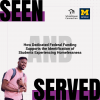
 Shared by Sandra Ware
on Nov 17, 2022
Shared by Sandra Ware
on Nov 17, 2022
 Shared by Karina George
on Jun 27, 2022
Shared by Karina George
on Jun 27, 2022
 Shared by Stephanie Gray
on Apr 11, 2022
Shared by Stephanie Gray
on Apr 11, 2022
 Shared by Housing Is
on Dec 1, 2020
Shared by Housing Is
on Dec 1, 2020
 Shared by Kelly McElwain
on Nov 7, 2019
Shared by Kelly McElwain
on Nov 7, 2019
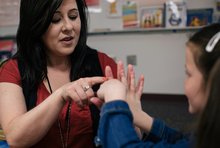
 Shared by Housing Is
on Jun 13, 2019
Shared by Housing Is
on Jun 13, 2019
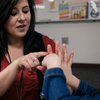

 Shared by Housing Is
on Jun 11, 2019
Shared by Housing Is
on Jun 11, 2019

 Shared by Housing Is
on Jun 3, 2019
Shared by Housing Is
on Jun 3, 2019
 Shared by Housing Is
on May 30, 2019
Shared by Housing Is
on May 30, 2019
 Shared by Housing Is
on May 30, 2019
Shared by Housing Is
on May 30, 2019
 Shared by Housing Is
on May 28, 2019
Shared by Housing Is
on May 28, 2019
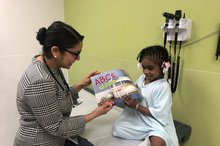
 Shared by Housing Is
on Apr 18, 2019
Shared by Housing Is
on Apr 18, 2019
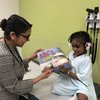
 Shared by Housing Is
on Apr 10, 2019
Shared by Housing Is
on Apr 10, 2019

 Shared by Housing Is
on Apr 4, 2019
Shared by Housing Is
on Apr 4, 2019

 Shared by Housing Is
on Mar 12, 2019
Shared by Housing Is
on Mar 12, 2019



